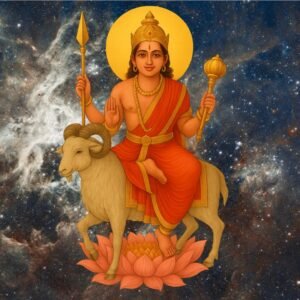Mantra Jaap Dashansh Havan
Dashansh Havan (हवन): A Powerful Vedic Fire Ritual
Dashansh Havan refers to a sacred fire ritual where devotees offer 10% (Dashansh) of the total Mantra Jaap into the holy fire. This ritual holds great importance in Vedic practices and aims to achieve purification, prosperity, and health. Devotees often perform it with faith and discipline to invoke divine blessings and balance planetary influences.
Importance of Hawan (Havan) in Hinduism
Hawan, also known as Havan or Yagna, plays a vital role in Sanatan Dharma. Devotees make offerings such as ghee, herbs, and grains into the sacred fire while chanting Vedic mantras. This ritual not only pleases the divine but also offers deep psychological, scientific, and spiritual benefits.
1. Key Benefits of Havan
-
Purifies Mind and Soul – Devotees chant mantras while offering oblations into the fire, which actively cleanses mental and emotional impurities.
-
Eliminates Negative Energies – As the sacred smoke rises, it drives away negative forces and invites positivity.
-
Please, Deities – Devotees connect with divine energies and seek blessings through the sacred fire.
-
Balances Karma – By performing Hawan, one works toward neutralising bad karma and creating space for spiritual growth.
2. Environmental & Scientific Contributions
-
Purifies Air – The smoke from burnt herbs, like neem and tulsi, actively kills airborne bacteria and viruses.
-
Balances Atmosphere – Ingredients such as sandalwood, camphor, and cow dung release oxygen and purify the surroundings.
-
Supports Rainfall and Weather Balance – Some practitioners believe that the chemical elements in the smoke stimulate cloud formation, promoting rainfall.
3. Psychological & Health Effects
-
Reduces Stress and Anxiety – The rhythmic chanting and aroma of sacred herbs calm the mind and body.
-
Boosts Immunity – Regular Havan strengthens the immune system by purifying the environment with medicinal smoke.
-
Improves Focus – Many report enhanced concentration and mental clarity after participating in these rituals.
4. Social & Cultural Importance
-
Fosters Community Unity – Families and communities come together to perform Havan, which strengthens relationships.
-
Preserves Vedic Traditions – People pass down these rituals from one generation to the next, keeping the spiritual heritage alive.
-
Marks Special Occasions – Devotees perform Havan during weddings, birthdays, housewarming ceremonies, and festivals to seek prosperity and divine grace.
Dashansh Havan for Mantra Jaap
When devotees chant mantras dedicated to Navgrahas—Sun, Moon, Mars, Mercury, Jupiter, Venus, Saturn, Rahu, and Ketu—they often conclude the practice with Dashansh Havan. In this ritual, they offer 10% of the total mantra count into the sacred fire. This act not only amplifies the energy of the Jaap but also balances planetary doshas and strengthens the beneficial effects of each graha (planet).
Ultimately, by performing Dashansh Havan with devotion and proper guidance, devotees actively align themselves with cosmic energies, remove astrological hurdles, and invite overall well-being into their lives.
Mantras for Navgrah Havan
Each planet has a specific Beej Mantra, which is chanted during the Havan. Here are the main ones:
1️⃣ Surya (Sun) Mantra Jaap – “ॐ ह्रां ह्रीं ह्रौं सः सूर्याय नमः॥”
2️⃣ Chandra (Moon) Mantra Jaap – “ॐ श्रां श्रीं श्रौं सः चन्द्राय नमः॥”
3️⃣ Mangal (Mars) Mantra Jaap – “ॐ क्रां क्रीं क्रौं सः भौमाय नमः॥”
4️⃣ Budh (Mercury) Mantra Jaap – “ॐ ब्रां ब्रीं ब्रौं सः बुधाय नमः॥”
5️⃣ Guru (Jupiter) Mantra Jaap – “ॐ ग्रां ग्रीं ग्रौं सः गुरवे नमः॥”
6️⃣ Shukra (Venus) Mantra Jaap – “ॐ द्रां द्रीं द्रौं सः शुक्राय नमः॥”
7️⃣ Shani (Saturn) Mantra Jaap – “ॐ प्रां प्रीं प्रौं सः शनैश्चराय नमः॥”
8️⃣ Rahu (North Node) Mantra Jaap – “ॐ भ्रां भ्रीं भ्रौं सः राहवे नमः॥”
9️⃣ Ketu (South Node) Mantra Jaap – “ॐ क्रां क्रीं क्रौं सः केतवे नमः॥”






Reviews
There are no reviews yet.